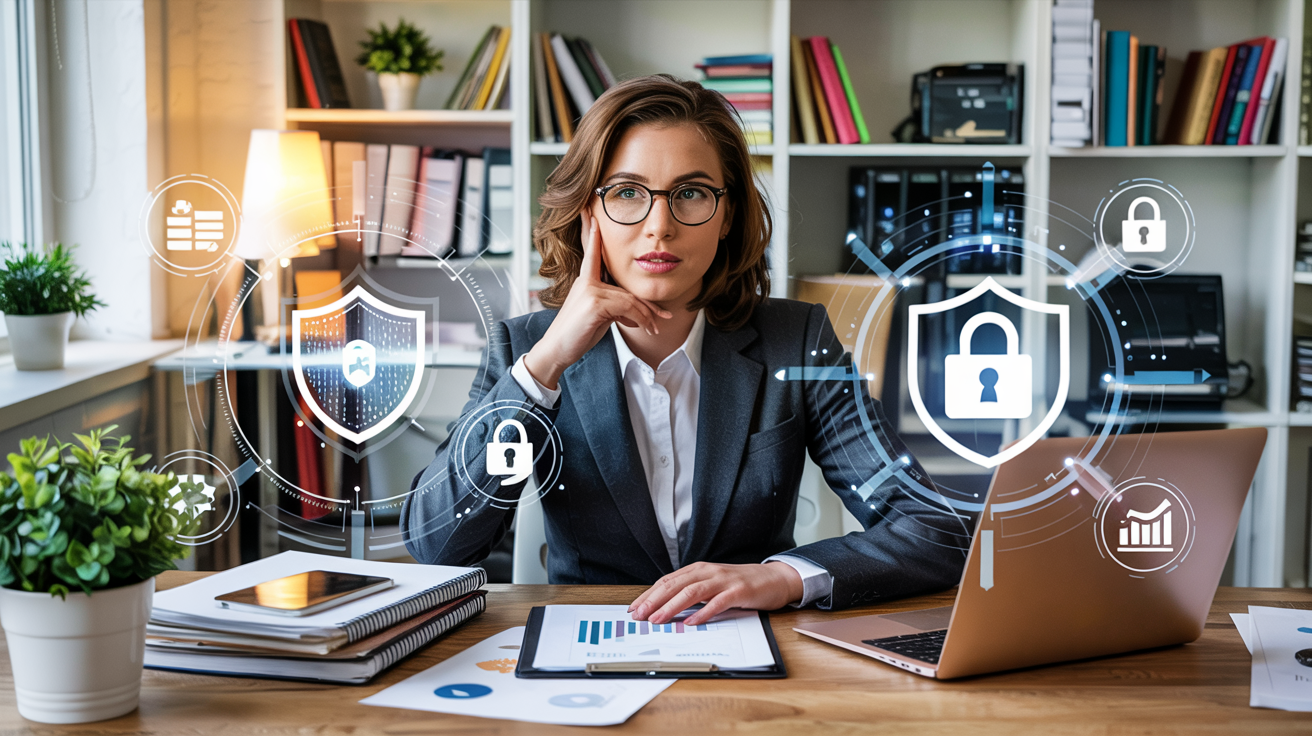by
DE Web Works
| Apr 25, 2025

Let’s be real—you're probably more focused on debits and credits than defending against cybercriminals. But as an accountant, you're sitting on a goldmine of sensitive client info: tax returns, bank details, payroll data… the kind of stuff hackers drool over. The good news? You don’t need to become an IT wizard to stay safe.
Here are five simple ways you can boost your cybersecurity game without breaking a sweat.
1. Turn on Multi-Factor Authentication (MFA)
You’ve probably seen this before—getting a code texted to your phone when logging into a website. That’s MFA, and it’s one of the easiest and strongest defenses against cyberattacks.
Why it matters: Even if a hacker guesses your password, they still can’t get in without that second code.
Do it now: Make sure MFA is turned on for email, accounting software, cloud storage, and your client portals.
2. Stop Using the Same Password Everywhere
“Accounting123” isn’t cutting it anymore. Hackers love when people reuse passwords. If one account is compromised, it opens the door to everything else.
Easy fix: Use a password manager like Bitwarden or 1Password. These tools generate and remember super-strong passwords for you. You only need to remember one master password.
3. Encrypt and Back Up Your Files
QuickBooks files. Excel spreadsheets. PDFs with Social Security Numbers. Imagine losing them all—or worse, having them stolen.
Back it up: Use a reliable cloud-based backup tool that encrypts your files both in transit and at rest.
Bonus tip: Schedule automatic backups at least daily during tax season.
4. Be Suspicious of “Urgent” Emails
Phishing emails are getting slick. A message might look like it’s from the IRS, your software provider, or even a client. But if they’re asking you to “click this link” or “confirm your login info,” take a beat.
Red flags to watch for:
Typos or weird grammar
A sudden sense of urgency (“Respond in 24 hours!”)
Unusual sender email addresses
When in doubt, don’t click—call the sender directly or forward the email to your IT provider for a second opinion.
5. Use a Secure Client Portal (Not Email)
Email is convenient, but it’s also one of the least secure ways to send documents. Instead, use a secure client portal to exchange tax forms, bank statements, or anything confidential.
What to look for in a portal:
Final Thoughts:
Cybersecurity doesn’t have to be complicated. With a few smart moves, you can protect your accounting business and your clients—no IT degree required. And if you’re ever unsure? That’s what we’re here for.